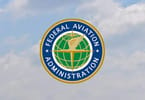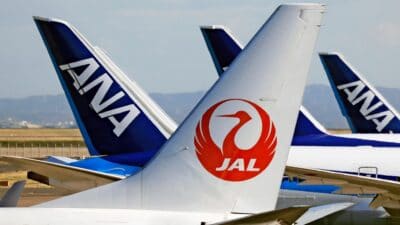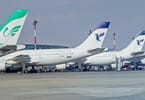American Airlines, US Airways Group Inc. and U.S. carriers borrowing to refinance debt and buy jets may struggle to find lenders and have to pay rates at least double those of two years ago.
AMR Corp.’s American, the world’s second-biggest airline, has $1.1 billion in debt due in 2009, while US Airways is seeking funding for five planes and Continental Airlines Inc. is arranging credit to fund aircraft deliveries one or two at a time instead of in larger batches.
The convergence of urgent capital needs and collapsing travel demand is ratcheting up pressure on carriers already pinched by the global credit crunch. Without new loans to refinance debt or acquire jets, airlines would be forced to use cash they’re counting on to help weather the recession.
“You’re looking at possibly having to burn the furniture for heat until the credit markets loosen up,” Hunter Keay, an analyst at Stifel Nicolaus & Co. in Baltimore, said yesterday. “We’re not there yet, but it could get that serious.”
AMR is in early talks to raise money from credit-card partner Citigroup Inc. by selling frequent-flier miles, the Financial Times reported yesterday, citing unidentified sources. AMR would follow at least four other large U.S. airlines in using such an agreement.
Andy Backover, a spokesman for Fort Worth, Texas-based American, and Citigroup’s Sam Wong in New York declined to comment on the report. American’s AAdvantage is the world’s biggest frequent-flier plan, with more than 60 million members.
‘Never a Question’
“It was never a question of whether American had access to liquidity from its mileage program, but when it would elect to draw it,” said Douglas Runte, managing director at Piper Jaffray & Co. in New York.
Airline-debt markets are now so tight that so-called enhanced equipment trust certificates sold by Continental at par with a 5.983 percent coupon in 2007 are trading at a discount to yield 10.5 percent, Runte said yesterday. EETCs are backed by aircraft and are a common method of financing for U.S. carriers.
“A new issue would be roughly at that rate or higher,” Runte said. “That is a huge change in financing.”
AMR said March 18 it expected to end the first quarter with cash and short term investments of $3.1 billion, including $460 million dedicated to specific uses. The debt due in 2009 already has been paid down by $700 million, Backover said.
‘Immediate Concern’
“The thing we can’t withstand is the capital markets being closed,” Chief Financial Officer Tom Horton said at a March 10 conference hosted by JPMorgan Chase & Co. While AMR expects credit markets to thaw this year, “if they don’t, I think it’s going to be a big challenge for us and the entire industry.”
Delta Air Lines Inc., the world’s biggest carrier, has about $3 billion of debt due next year, and President Ed Bastian has said he anticipates refinancing at least half of it.
US Airways is working with Airbus SAS to finance five A330 jets this year, the first of which will be delivered April 15. A year ago, the airline financed 15 planes in one transaction.
“It is very hard to get credit and it’s very hard to get financing,” Chief Financial Officer Derek Kerr said in an interview last week at US Airways’ headquarters in Tempe, Arizona.
Tarife mai mari
Carriers including Continental and American have arranged so-called backstop financing for 2009 jet deliveries. Those loans, available from sources such as GE Capital Corp. and planemakers Boeing Co. and Airbus, aren’t long term borrowing and carry higher interest rates.
“No U.S. airline will take aircraft without first securing financing, so either Airbus needs to step up and help US Airways fund those A330s or, if no one else does, they will be deferred,” said Mark Streeter, a JPMorgan Chase & Co. analyst in New York. The same is true for Boeing’s credit arm and American’s 737-800s, he said.
Delta rose 19 cents, or 2.9 percent, to $6.64 yesterday in New York Stock Exchange composite trading, while AMR climbed 24 cents, or 6.8 percent, to $3.75. Continental fell 13 cents to $10.27 and US Airways rose 14 cents, or 5 percent, to $3.02.
United Airlines parent UAL Corp. gained 1 cent to $5.29 in Nasdaq Stock Market composite trading.
At US Airways, March revenue from each seat flown a mile dropped as much as 19 percent, echoing a decline on the same basis of as much as 20.5 percent for Continental. Passenger traffic at both airlines declined from a year earlier, in part because the Easter holiday falls in April this year.






















